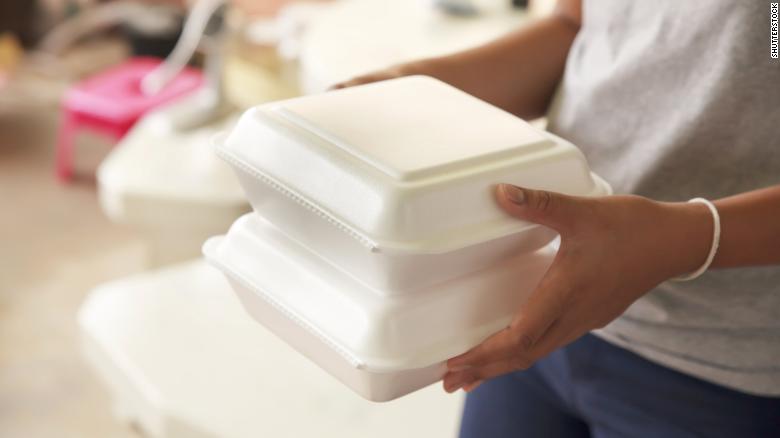If you followed along with our Earth Day 30 Days Straight posts for the past few years, you may have noticed we repeatedly bring up one particularly pesky plastic as especially problematic: polystyrene foam, sometimes also identified as Styrofoam.
(Fun fact: Styrofoam is a brand name for an extruded polystyrene (XPS) product manufactured by Dow Chemical and is a different material than the expanded polystyrene (EPS) foam used to make disposable cups and plates, to-go containers, coolers, and packing materials.)
You may also have heard some big news coming out of Maine earlier this month- namely that the governor signed a bill that bans the use of polystyrene foam for disposable food service containers statewide. The new law applies to “service ware for take-out foods, packaged meat, eggs, bakery products and leftovers from partially consumed meals prepared by food vendors.”
So what’s the big deal? For starters, polystyrene is difficult to recycle and is not accepted in most municipal facilities, including the City of Memphis. Americans alone throw away 25 billion polystyrene cups every year, taking up 1/3 of all U.S. landfill space along with other polystyrene foam items and non-recyclable plastics.
And that’s really the best-case scenario for this particular type of plastic, which is the primary source of urban litter. When not properly disposed of, it releases chemicals into the soil and water supply as it breaks down. It can also be ingested by wildlife, causing choking and starvation, and it is the main pollutant of oceans, bays, and other United States water sources. On top of that, it is also reported to leach chemicals into both hot and cold food. Finally, its production is energy intensive, creating large amounts of greenhouse gases.
We think it’s past time to stop using polystyrene products for food service and storage (along with a number of other single-use plastics, such as plastic shopping bags). We’re proud of our Project Green Fork-certified establishments for pledging to use recyclable and compostable alternatives to polystyrene for food and beverage containers. Most of all, we’re hopeful that more states (including some in the Southeast!) will consider the health of people, wildlife, and our environment a worthwhile investment by regulating this pesky plastic!

